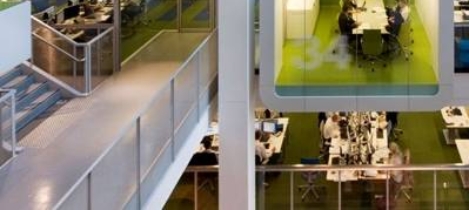April 22, 2016
The new issue of Work&Place is now available to read online 0
 The new issue of Work&Place is available to view online. As ever it presents a truly global perspective on the forces that are redefining our relationship with work and how designers and managers are creating workplaces and working cultures to help firms and people thrive in the new era. This issue includes: Francisco Vazquez Medem looking at the current state of flexible working in Latin America; Ian Ellison finding the unlikely candidate for the missing piece of the workplace puzzle; Andrea Hak assessing what we can all learn from Yahoo’s recent trials and tribulations; Serena Borghero engaging in the ongoing quest for the truly engaged workplace; and Baptiste Broughton gauging France’s unique revolutionary spirit and how it applies to the worrkplace. Each issue of Work&Place, sponsored by Steelcase and Condeco, is read by well over 60,000 workplace professionals worldwide and invites all those associated with the industry to share their own thoughts and experiences during this tumultuous era. Illustration by Simon Heath.
The new issue of Work&Place is available to view online. As ever it presents a truly global perspective on the forces that are redefining our relationship with work and how designers and managers are creating workplaces and working cultures to help firms and people thrive in the new era. This issue includes: Francisco Vazquez Medem looking at the current state of flexible working in Latin America; Ian Ellison finding the unlikely candidate for the missing piece of the workplace puzzle; Andrea Hak assessing what we can all learn from Yahoo’s recent trials and tribulations; Serena Borghero engaging in the ongoing quest for the truly engaged workplace; and Baptiste Broughton gauging France’s unique revolutionary spirit and how it applies to the worrkplace. Each issue of Work&Place, sponsored by Steelcase and Condeco, is read by well over 60,000 workplace professionals worldwide and invites all those associated with the industry to share their own thoughts and experiences during this tumultuous era. Illustration by Simon Heath.







































April 21, 2016
How and why Millennials are shaping the future of remote working 0
by Sara Sutton Fell • Comment, Facilities management, Flexible working, Workplace, Workplace design
More →